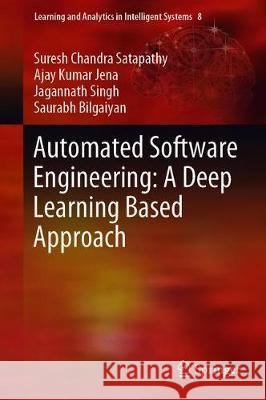Automated Software Engineering: A Deep Learning-Based Approach » książka
topmenu
Automated Software Engineering: A Deep Learning-Based Approach
ISBN-13: 9783030380052 / Angielski / Twarda / 2020 / 118 str.
Automated Software Engineering: A Deep Learning-Based Approach
ISBN-13: 9783030380052 / Angielski / Twarda / 2020 / 118 str.
cena 563,56
(netto: 536,72 VAT: 5%)
Najniższa cena z 30 dni: 539,74
(netto: 536,72 VAT: 5%)
Najniższa cena z 30 dni: 539,74
Termin realizacji zamówienia:
ok. 16-18 dni roboczych.
ok. 16-18 dni roboczych.
Darmowa dostawa!
Kategorie:
Kategorie BISAC:
Wydawca:
Springer
Seria wydawnicza:
Język:
Angielski
ISBN-13:
9783030380052
Rok wydania:
2020
Wydanie:
2020
Numer serii:
000888195
Ilość stron:
118
Waga:
0.36 kg
Wymiary:
23.39 x 15.6 x 0.97
Oprawa:
Twarda
Wolumenów:
01
Dodatkowe informacje:
Wydanie ilustrowane











